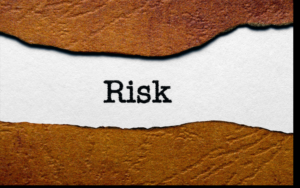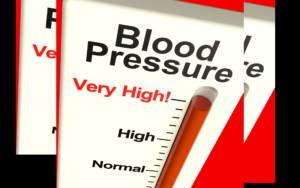
Lifestyle modification and blood pressure medication are the treatment recommended by the hypertension guideline? What’s the goal of blood pressure treatment? Your target goal blood pressure is the goal of blood pressure treatment.
In this podcast episode, I will review what hypertension is, tell you what a target blood pressure is, and why it is the very first thing you ought to know about your blood pressure. I will also give you the target goal blood pressure for the general population that you can use until you talk with your health care provider to get your target goal blood pressure. Disclaimer, this information will only help you if you are ready for health behavior change. Ready, let’s do this!
What’s a target blood pressure goal and why would you need to know yours? The average person probably won’t know the answer to both of these questions. It is likely that you have never heard of a blood pressure target goal.
A blood pressure target goal is the blood pressure that your health care provider refer to in order to determine if your blood pressure is controlled or uncontrolled. In fact, your provider uses your blood pressure target goal to diagnose hypertension, decide when to consider prescribing medication treatment for you, and how much medication to prescribe. In addition, your provider makes any medication adjustments based on your blood pressure target goal.

Hypertension, also know as high blood pressure, is a chronic disease that is common all over the world. More than 60% of Americans have been told by their health care provider that they have hypertension and over 50% of people with hypertension are not at their target goal blood pressure.
So it should not surprise you that heart disease, sometimes called cardiovascular events, are the number one killer in the United States and Stroke is not far behind at number four.
We have known since 1925 (Blood Pressure Study of 1925 by the Actuarial Society of America) that high blood pressure as low as mild and moderate levels cause death due to cardiovascular complications. Two landmark Veteran Administration studies in the 1960s confirmed that high blood pressure puts you at risk of death or disability.
A disability may occur when you lose your independence due to blindness, stroke, heart attack, heart disease, kidney failure, or other poor cardiovascular outcomes. If you survive an event, you can still live a quality of life, but it will take some work of recovery.
Blindness puts you at a disadvantage until you can learn how to live your life independently without your sight. If you survive a stroke, you could go through rehabilitation to get close to your current level of speaking, walking, and daily activity. After a heart attack, cardiac rehabilitation may get you back to your current condition. President Clinton is an excellent example of what a good outcome would look like after a heart attack. Let’s face it, kidney failure is not all that bad either. Receiving dialysis for four hours a day three times a week at a local dialysis center is not all that bad once you get used to it and once you make time in your schedule. But, if you could do one thing that would pretty much guarantee that you won’t have these experiences, won’t it be worth a try?
Hypertension doesn’t have to cause disability, unnecessary suffering from injury and illness, or death. People with controlled hypertension rarely experience poor outcomes from hypertension. Uncontrolled hypertension alone will likely cause disability, injury to your blood vessels, illness such as cardiovascular disease, and death.
What is the set of numbers that make up a blood pressure target goal? For the general adult population, the blood pressure target goal is less than 130/80 mm Hg. However, in the medical clinic, 140/90 mm Hg is the recommended blood pressure target goal for the general population.
Why is your target goal one of the most important things you ought to know about your blood pressure? If your blood pressure is 130/80 mm Hg or more, you have double the risk for a heart attack compared to someone that is at a target blood pressure.
It is important to know your target blood pressure goal so you will have outcome related expectations. In OTHER WORDS, you will know when to take action to reduce your blood pressure, which could prevent severe blood pressure. Severe blood pressure for a long enough period of time will likely and eventually lead to poor health outcomes and impact your quality of life. Poor health outcomes include blindness, stroke, heart attack, and kidney damage from hypertension.
Where do you get a target blood pressure goal? Your health care provider can give you your blood pressure target goal. Just ask your health care provider if 130/80 mm Hg is appropriate for you. Some people require a lower target goal of 120/80 mm Hg to prevent stroke, heart attack, and kidney disease. For example, people 55 years old or older who are at high risk for stroke or cardiovascular disease may require this lower blood pressure target goal.